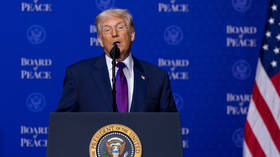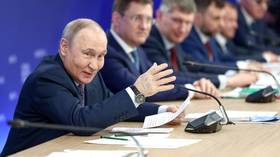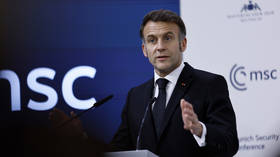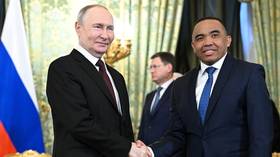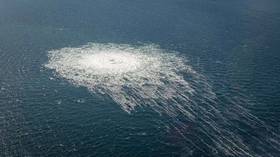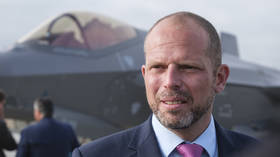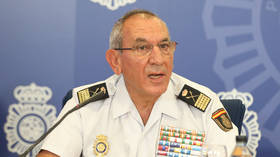Most civilian aid for Afghanistan lost - former UN anti-crime chief
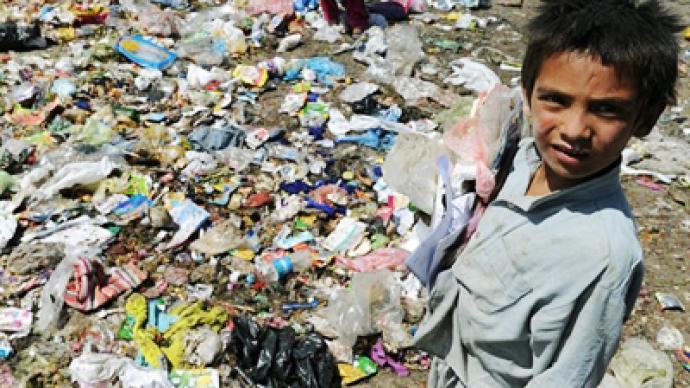
Up to 80 per cent of international help to Afghanistan is being lost in international and local corruption schemes, insists Pino Arlacchi, Italian Member of the European Parliament and the former UN anti-drug and crime chief.
When asked about the situation with drugs in Afghanistan and claims that the brother of the president is a well-known drug lord, Arlacchi said “this is a very old story”.“When I was in the UN, this guy [Ahmed Wali Karzai – brother of President Hamid Karzai] was already known as a major [drug] trafficker… of course it is true, but this is just one problem out of many,” said Pino Arlacchi.He confirmed that the US diplomatic cables revealed by WikiLeaks paint a disastrous picture of Afghanistan. Officials traveling with millions of dollars of cash and having villas in Dubai is “absolutely true, but just one piece of truth”, he said.“Out of the US$40 billion that arrived in Afghanistan for civilian aid, only eight billion went through the Afghan government,” he revealed, “the rest is international corruption.”Although the Western media keeps on talking about the corruption in the Afghan government, Arlacchi claims the reality is that Afghans are dealing with only about 20 per cent of the money and the scale of international corruption is much higher.The “soft corruption” that devours up to 80 per cent of the money allocated for Afghanistan remains invisible, unlike Afghan ministers with cases stuffed with dollars.Much more money is being wasted on useless consultancies which the Afghan people do not need, Arlacchi believes.NATO's anti-drug policy since the invasion of Afghanistan has had no impact on drug trafficking in the country because “NATO does not do anti-narcotics operations”.The military logistics in Afghanistan include outsourcing the security of convoys to Afghan companies “comprised of warlords and sometimes even the Taliban”. “They guarantee the security of convoys of trucks that go from Kabul to anywhere in Afghanistan in exchange for a huge amount of money” and the money earned in this way and paid by NATO itself is “more than the Taliban gets from drug trafficking”.Back in the 1990s, Pino Arlacchi managed to eliminate the poppy crop in Afghanistan by creating an alliance of countries bordering Afghanistan and forcing the Taliban to stop heroin production.“So in 2001, there was almost zero opium production in Afghanistan,” he said, stressing that the aim of eliminating heroin production in Afghanistan is achievable. Russia and the EU are going to launch a plan that will eliminate heroin production in Afghanistan in five years.Still, today Afghanistan is practically “destroyed by the storm that has been lasting for ten years”.Poverty in Afghanistan is more widespread today than it was ten years ago, with 50 per cent of Afghan children undernourished. This happens because the huge sums of money the international community is allocating for civilian aid in the country is lost in international and local corruption.“Organized crime is a major factor in provoking the financial crisis,” said the former UN anti-crime chief.The world economic crisis was provoked by criminal interests and it is organized crime that gained the most from the instability.“What Russia was in the 1990s, with mafia going all over exporting Russian money, money laundering, corruption, violence, is now occurring in several countries of the world.”Among such countries Pino Arlacchi mentioned Hungary and Albania, recently struck by serious financial turmoil.Another example is Tunisia and Egypt, where the families of the presidents “became ultra-rich, stashed their money abroad” and to do this they must have used some money laundering schemes, Pino Arlacchi alleges.


